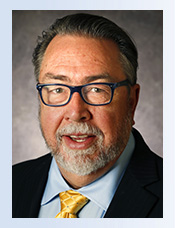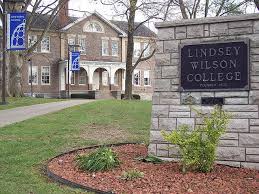The Founders Day speech at Lindsey Wilson College:
I want to talk about the special virtue of the small liberal arts college. I want to share with you the reasons why I believe so strongly that there should be schools like Lindsey Wilson.
The first is that state government support for public campuses has faltered and failed, here and elsewhere. In the just-concluded General Assembly session at Frankfort, lawmakers cut – once again – taxpayer support for our state-assisted colleges and universities. The presidents of those institutions signed a letter that pulled the rug out from under the House of Representatives, which correctly insisted that it was possible to make an effective start on solving the state’s pension problems and, at the same time, to avoid savage cuts at our state institutions.

There was enough money to do both. Gov. Beshear left the state in relatively good shape, financially. But when the Council on Post-secondary Education leadership and the campus presidents knuckled under to the Governor’s bullying, the game was over. UK is left facing a new fiscal year in which it will receive nearly $70 million less on a recurring basis, annually, from the Commonwealth than it did just 10 years ago. It’s the same sad story at our other public campuses.
The travesty of raising tuition
Now we board members at those institutions will be asked to endorse this travesty by raising tuition, for the ninth time in nine years. The claim will be that we just hurt the schools if we don’t load another tuition hike onto tens of thousands of students and their families. I think the greater harm would come in endorsing the fiction that public higher education budgets can be endlessly cut without doing damage, the fantasy that public campuses are squandering great sums of money, and the fallacy that endless tuition hits are endurable.
Trustee ratification of what was done in Frankfort, with the help of our public campus presidents, would just kick the can down the road. It would delay the day when state government must raise new revenue to adequately fund the services Kentuckians need and deserve, including the development of excellence at the institutions charged with producing the intellectual capital that is essential to Kentucky’s success in a modern economy. It would mean that we keep studying tax reform but doing nothing about it, that we keep ignoring the raids on Kentucky assets by casino interests in surrounding states, and that we keep pretending to do right by Kentucky’s future. We have had 12 tax studies since 1982 – the most recent producing 54 reform proposals – and each time we have ignored the most promising ideas.
Schools like Lindsey Wilson are certainly not immune from financial pressures, but they are not directly in the path of the public’s no-new-tax juggernaut and politicians’ timidity. Their financial fate is in their own hands.
Nor are small private schools trapped in the hypocrisy and exploitation of big-time college athletics. Sports are grand. I’m a sports fan. However, speaking broadly, it’s a fiction that sports as we know them at the highest level of college competition reflect and reinforce the best of values. Schools like Lindsey can be competitive at their level and not abandon their basic academic mission. They can give opportunities for participation to many who otherwise would not have them. In all too many ways, big-time college athletics mock the very notion of the student-athlete. At Lindsey and similar institutions, that need not be the case.

Schools like Lindsey also are important because they can still embrace a deep and broad education. While public institutions are bullied toward the narrow credentialing of job-seekers, instead of preparing students for lifelong learning, effective citizenship and a dynamic career, schools like Lindsey can still be havens for the best that higher education can do. Instead of being pushed to favor science, math and technology at the expense of arts and humanities, private campuses can be a refuge for embracing our cultural canon… for producing students who know where we came from, the better to understand where we’re going… for graduating young people who can think critically and adjust nimbly.
A ‘safe place’ in the best sense
The Governor can’t force Lindsey to abandon the study of French language, literature and culture, or anything else. The Lieutenant Governor’s resentment at having her tax money spent on educating the next generation has no impact here at Lindsey Wilson. At the small liberal arts college, the rhythms of history and culture can be more important than the algorithms of modernity.
And finally, schools like Lindsey can give students — at a crucial time in their development -– a little bit of shelter from the more destructive winds that blow through society. Spending four years on this campus can help strengthen students to stand upright in the storms they will confront in the wider world. An education here can prepare them for the whirlwinds of consumerism, materialism, rashness, self-indulgence, impermanence, celebrity and cynicism. Lindsey can be something of a safe place – not in the sense that some student protesters mean these days, but in the best sense.
Until recently on most campuses, the term “safe place” referred to protection from physical danger, not from dangerous ideas. These days, sadly, when some students demand “safe places” they are talking about places where they can be free from exposure to ideas and arguments they find offensive. This version of “safe place” vitiates the very purpose of education, which is to challenge and enlighten. Higher education, at its best, is a refiner’s fire, in which students sharpen and strengthen their understanding of the world. We don’t educate by merely confirming preconceptions and preferences.
Students’ insistence on “safe places” is echoed by people and groups in the wider world, demanding removal of every evidence of an unjust and corrupt past. And sometimes that’s a good thing. For example, the Confederate battle flag has been taken down – and properly so – from atop the South Carolina State House, where it appeared to endorse the South’s fight for slavery. The ensign was moved, appropriately, to a nearby museum for display
Some want the statue of Confederate President Jefferson Davis removed from our Capitol Rotunda and displayed in a nearby museum. That’s a reasonable solution. Alongside the the University of Louisville campus, there’s a huge 70-foot monument to the Confederate dead, which some believe should be destroyed. As for me, I find it a useful reminder that our nation fought its bloodiest, cruelest war to end the scourge of slavery. It is being disassembled and moved to an as-yet-unchosen place for display.
As a trustee at the University of Kentucky, I respect students who are disturbed by having to look at a 1930s campus mural illustrating Kentucky’s past. This artwork includes slaves, their backs bent, planting tobacco, and others playing music for white dancers, all of which is true to history. I’m glad that President Capilouto has listened carefully to these students and to concerned faculty, and I’m glad that we are committed to finding a respectful solution to the mural problem. I’m glad that we trustees have written diversity into every part of the new UK strategic plan, and I’m glad that trustees and administrators recently have taken unconscious bias training. I’m glad about all this, but I also believe a campus is the wrong place to expunge history or circumscribe ideas.
America’s civic tradition: A tolerance of ideas
ThLe American civic tradition is tolerance of ideas, not effacement of them. That’s why there’s a First Amendment to the U.S. Constitution, which has withstood many tests. In 1977, some 30 members of the Nazi Party of America proposed to march in Skokie, Ill. They were to wear uniforms reminiscent of Hitler’s minions, including swastika armbands, and carry a Nazi banner. At the time, Skokie had a population of about 70,000, including 40,000 who were Jewish, of whom 5,000 were Holocaust survivors. Outraged local residents tried to block the march because it would “incite or promote hatred against persons of Jewish faith or ancestry,” because it would “deliberately and willfully” inflict severe emotional harm and would provoke an “uncontrollably” violent response and “bloodshed.” In a series of decisions, courts said the Nazis had a First Amendment right to march in Skokie. Ultimately they agreed to march elsewhere, in Chicago.
Now here is the beautiful part of the story. Local Holocaust survivors decided to combat hate with education, creating in Skokie an extraordinary Holocaust museum and memorial. At the time of its opening, Professor Geoffrey Stone recalled the words of Justice Louis Brandeis, who said the First Amendment’s framers knew “that fear breeds repression; that repression breeds hate; that hate menaces stable government; that the path of safety lies in the opportunity to discuss freely supposed grievances and proposed remedies; and that the fitting remedy for evil counsels is good ones.”
The “safe place” is one where bad ideas and bad history can be challenged with good ideas and better historical insight. There would have been nothing safe in removing, as some students demanded, the name Woodrow Wilson from a public policy school at Princeton University, where he served as president – a proposal they felt was justified because he held racist views in the early part of the 20th century. There is no safety in renaming the job of running a Harvard residence house – a job which historically has been called housemaster – especially when Harvard’s use of the term bears no historical relationship to slavery or slave masters.
I believe a school like Lindsey should be a safe place – but not safe from controversial ideas or disturbing history. As a parent, I could not keep my sons safe forever, and from everything. I reluctantly turned them loose in a sometimes dangerous, sometimes disturbing world.
I remember taking my son Jonathan to New York for his 16th birthday. We ate fancy meals, walked the park, visited the Rainbow Room on top of Rockefeller Center and saw Broadway shows, including the original production of “Into the Woods.” In that script the witch pleads with her daughter Rapunzel, who is locked away in a tower, to stay with her and remain a child. I glanced at my much-beloved son and choked up when the witch sang, “Who out there could love you such as I? What is out there that I cannot supply? Stay with me…”
I didn’t want to let Jon go, but I knew we had to. We had to turn him loose in a world that would offer many opportunities, but also would threaten many of the assumptions and many of the values that he had acquired while growing up in our family. I knew there would be no entirely safe place for him out there, but I hoped we had given him some ideas with which to cope.
That’s what a place like Lindsey can do – equip young people who are lucky enough to be here with ideas they need to do a lifetime of living and learning.
David Hawpe, former editor of the Courier-Journal, is a member of the Kentucky Humanities Council, the University of Kentucky Board of Trustees, the University Press of Kentucky editorial board and the national advisory council of the Appalachian Renaissance Initiative.


















Mr, Hawpe: Glad to see you back in print again. The Courier Journal has lost its edge since you left. I always enjoyed your columns and appreciate your reasoned perspective on life, culture and country.